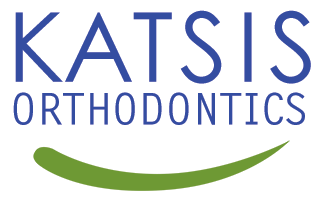Katsis Orthodontics: Braces FAQsHere's a list of some of the top questions we've been asked over the years. Please let us know if you have any others!
Q: Can I afford braces?
A: Our office is committed to making orthodontic treatment affordable for all of our patients. We are IN-NETWORK with all major insurance plans which can save you hundreds and sometimes even thousands of dollars compared to out-of-network providers. We also offer a variety of 0% interest payment plans through our office! When you come to your initial examination please bring your insurance information so we can determine your coverage and provide payment options and your payment plans. Q: When should my child be evaluated for Orthodontic Treatment? A: The American Association of Orthodontics recommends all children have an orthodontic evaluation at age 7 to evaluate for jaw growth and tooth eruption disorders that are better treated at an early age. Fortunately these early orthodontic problems are relatively rare and the treatment to correct these are minimally invasive and comfortable. At Katsis Orthodontics we feel that children benefit the most from an orthodontic evaluation between the ages of 7 and 10. As always, our initial consultations are complimentary and no referral is needed to evaluate your child! Q: Do braces hurt? A: Putting braces on doesn’t hurt but some soreness is to be expected a few days after braces are placed. Don’t worry though because the soreness is temporary! Over-the-counter pain relievers, wax, and warm salt water rinses help ease the initial and temporary discomfort from braces. Q: I am interested in Invisalign and my dentist said I do not qualify. Do I have to have braces? A: As an orthodontic specialist who has successfully treated a variety of orthodontic problems with Invisalign and has done extensive continuing education with Invisalign we find that very few people are not Invisalign candidates. No orthodontist in Bartlett, Bloomingdale, or West Chicago does more Invisalign than we do! Our new iTero digital scanner replaces uncomfortable impressions and allows for a faster turn-around for your aligners! Q: I feel I have a minor orthodontic problem and I want to try an at-home/DIY orthodontic solution. Will this work for me? A: At-home and Do-It-Yourself orthodontic treatments are NOT recommended by the American Association of Orthodontics or the American Dental Association and we at Katsis Orthodontics share this sentiment. Orthodontic treatment by-in-large is a safe and effective treatment with proper supervision and treatment planning by an orthodontic specialist. At home orthodontic solutions have significant limitations to treatment and are often more expensive than limited treatment designed and supervised by an orthodontist. Many individuals who attempt at home orthodontics experience tooth and gum damage that has resulted in tooth loss and significant damage to the oral tissues. Our office and the vast majority of other orthodontic offices provide complimentary consultations to evaluate your orthodontic needs. We at Katsis Orthodontics want to provide safe, efficient, and minimally invasive treatment for all patients that will also provide an outstanding result. Q: My general dentist said that he/she can do orthodontics and that their services are cheaper for the same result. Is this true? A: General dentists provide a variety of dental care and treatments and can legally provide all facets of dental care. An orthodontist is a dentist who completed an accredited residency program specializing in treating dental and jaw discrepancies after graduating dental school. All orthodontists are general dentists who choose to limit their scope of practice to orthodontics. Services that promise amazing results in very short periods of time because of special braces or wires are simply gimmicks. Biology and anatomy dictate the speed and effectiveness of tooth movement and jaw growth. Moving teeth too quickly can damage the teeth and gums. Additionally teeth that are moved too quickly are far more susceptible to relapse (re-crowding) after the treatment is complete. Cost of treatment is dependent on many factors such as complexity, insurance coverage, and type of treatment. Many times the cost provided by a general dentist is the same or more expensive than services provided by an orthodontist! It is also very important to make sure that the costs of all facets of treatment are explained prior to beginning treatment. Prior to beginning orthodontic treatment make sure the cost of retainers, emergency visits, and additional appliances are explained in advance. We do everything we can at Katsis Orthodontics to make sure you and your family know exactly how much your TOTAL treatment will cost and provide a variety of payment plans to help make orthodontic treatment affordable! |
|
Hours:
M -Th: 8:00 - 5:00 Sat: 8:00 - 1:00 Hours may vary by location |





